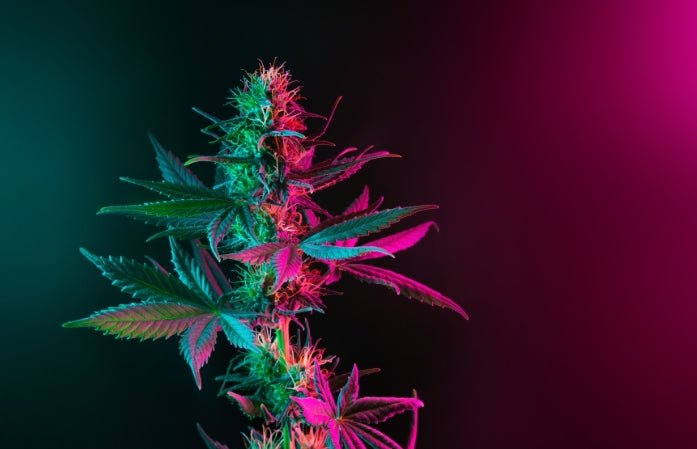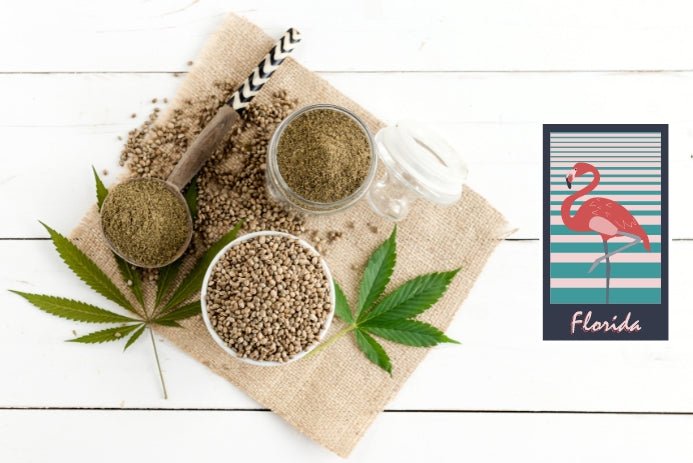The MN Office of Cannabis Management (OCM) wants the state legislature to pass a law to help them appropriately police the sale of the product known as THC-A.

When the two disparate worlds of science and politics work together for a common cause, the results can sometimes be incredible. Some of the best examples include developing vaccines for polio, smallpox, and many other deadly viruses that devastated the lives of millions across the globe during the 19th and early 20th centuries.
However, in this century, the respective track records of the scientific and political spheres have been significantly less inspiring and successful. The COVID-19 disaster revealed the less-than-stellar results of combining a for-profit medical industrial complex with broken, corrupt, and incompetent political systems across the globe.
With the total loss of integrity from both flawed communities, many human beings have lost faith and trust in both science and politics. A glaring example of that disconnect is playing out in real-time for the millions of Americans who have become dependent on the physical, psychological, and emotional healing provided by legal cannabis and hemp.
In the past ten years, close to half the states have passed and enacted cannabis legalization reform, while over 40 states and territories have established some medical marijuana programs for citizens seeking relief from chronic pain, insomnia, anxiety, and a host of other debilitating maladies.
During that same period, Congress removed hemp from the Controlled Substances Act (CSA) with the passage of the 2018 Farm Bill, making the plant and all of its derivative downstream products and uses federally legal.
While these dynamic and radical changes to American law concerning both plants are cause for relief, joy, and celebration for the legions of people suffering from conditions only cannabis and hemp can alleviate, it has also created a regulatory, law enforcement, and business nightmare for health officials, lawmakers, consumers, and the hundreds of thousands of small companies comprising both industries.
One of the states currently wrestling with some of the complex issues associated with cannabis and hemp is Minnesota. Last May, the North Star State became the 23rd to legalize adult-use marijuana for individuals over 21. However, the state also has a well-established medical marijuana program, and it boasts one of the nation’s most robust and competitive hemp-derived product sectors as well.
For state regulators, legislators, and business owners, it has created both an incredibly diverse array of options for the consumer and a regulatory minefield for those in charge of public safety and law enforcement.
One issue, in particular, is the proliferation of raw and unprocessed cannabis, better known as THC-A flower, in recent years. THCA, or tetrahydrocannabinolic acid–specifically Delta-9 THCA, is “a naturally occurring cannabinoid in hemp and cannabis plants. It is the acidic ‘precursor’ to THC and exists primarily in young, freshly harvested cultivars. THC-A is non-psychoactive until it converts to THC through non-enzymatic reactions when exposed to heat. Known as decarboxylation, this process activates cannabis’ psychoactive properties.”
To the average person, it is tough to distinguish between hemp and cannabis. Both are part of the same cannabis sativa plant, with the only measurable difference being that hemp is defined as any part of the cannabis sativa plant containing less than 0.3% delta-9 THC per dry weight. All other portions of the plant are considered marijuana, which is still federally illegal under the CSA.
So, when raw cannabis products started showing up in hemp shops across the state, officials didn’t really know how to handle it. While it may seem like a technical chemical loophole, THC-A is entirely legal because the product comes from hemp. However, not everyone is happy with that arrangement.
To some, like Charlene Briner, the interim director of the state’s Office of Cannabis Management, the spread of THC-A products throughout the Minnesota hemp industry is a health issue she believes her office must address. As a result, according to numerous local and national media outlets, she is asking the state legislature to pass a special law to help the OCM monitor and police the raw cannabis flower items, which have no clear regulatory guidelines under the legalization measure passed last Spring.
As part of that legislative request, Briner will ask lawmakers to transfer the oversight and enforcement of hemp-derived products from the Office of Medical Cannabis to her office this summer rather than wait until next Spring. In doing so, she hopes to fill a gap in the adult-use cannabis law that gave the OCM the authority to examine THC-A products but not the staff to carry out the inspections.
The change would additionally add hemp product oversight to the OCM immediately, enabling the medical cannabis office to focus exclusively on the regulation and control of the medical marijuana program.
Inspection teams from the Office of Medical Cannabis are already in the field working with hemp retailers. However, they have no authority to test and sanction the sale of THC-A products that may or may not be illegal. By transferring those teams to the control of the OCM sooner than later, Briner contends her office will be able to address the THC-A dilemma better.
“Accelerating the transition and bringing over the enforcement team from the Office of Medical Cannabis, bringing them over to OCM as early as July 1, 2024, helps us better integrate those operations (and) develop additional consistency in our enforcement approach,” Briner said during a webinar last week detailing her office’s progress in establishing retail cannabis sales.
"Accelerating the transition and bringing over the enforcement team from the Office of Medical Cannabis, bringing them over to OCM as early as July 1, 2024, helps us better integrate those operations (and) develop additional consistency in our enforcement approach."
- Charlene Briner, Interim Director of the MN Office of Cannabis Management
However, during that same presentation, Briner said that adding the medical cannabis inspectors to the OCM is not being requested solely to close the inspection and enforcement gap.
“The early transition is something we’d identified as making sense from a capacity building and alignment perspective well before the issue around raw flower had really even been identified,” she said.
"The early transition is something we’d identified as making sense from a capacity building and alignment perspective well before the issue around raw flower had really even been identified."
- Charlene Briner, Interim Director of the MN Office of Cannabis Management
What makes this massive movement of people and resources to address the THC-A question somewhat confounding for industry advocates and stakeholders is that once the licensed retail system is launched sometime in early 2025, the offending products in question will be legal to sell.
The effort and money necessary to carry out these inspections is hardly worth it, considering it will not matter a year from now. However, if a new law is passed and Briner gets her army of inspectors, one outcome is inevitable. The measure will severely hobble the Minnesota hemp industry, with the ultimate winners being corporate cannabis interests.
Steven Brown, Owner of Nothing But Hemp, sums it up best by saying, "The 2018 Farm Bill legally recognizes raw hemp flower, yet Minnesota's actions against THC-A seem perplexing. Given that residents are permitted to cultivate cannabis themselves, it's baffling why businesses are restricted from growing hemp-derived flower and selling safe flower. From a safety perspective, it is more secure for a professional grower to cultivate cannabis plants than for individuals to do so within their own homes."
"The 2018 Farm Bill legally recognizes raw hemp flower, yet Minnesota's actions against hemp flower seem perplexing. Given that residents are permitted to cultivate cannabis themselves, it's baffling why businesses are restricted from growing hemp-derived flower and selling safe flower. From a safety perspective, it is more secure for a professional grower to cultivate cannabis plants than for individuals to do so within their own homes. I have nothing against consumers growing at home, businesses should also have the options to grow Farm Bill legal smokeable hemp."
- Steven Brown, Owner of Nothing But Hemp
Brown's comments underscore and highlight perhaps the most frustrating aspect of all of this bluster and fabricated worry. Cannabis and hemp are inextricably linked, and only by working together can both industries achieve their true and powerful potential. Science and politics most definitely do not always mix.








































